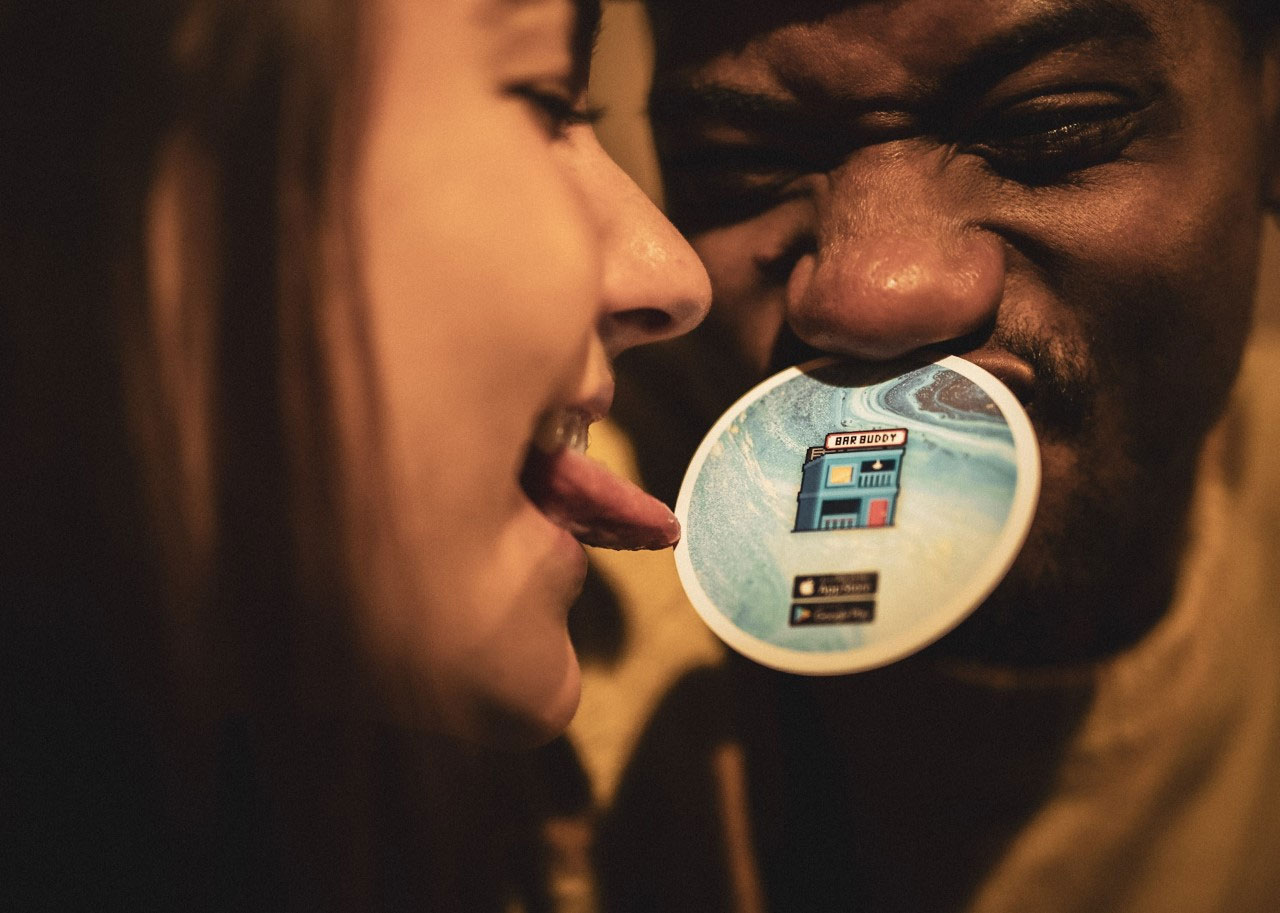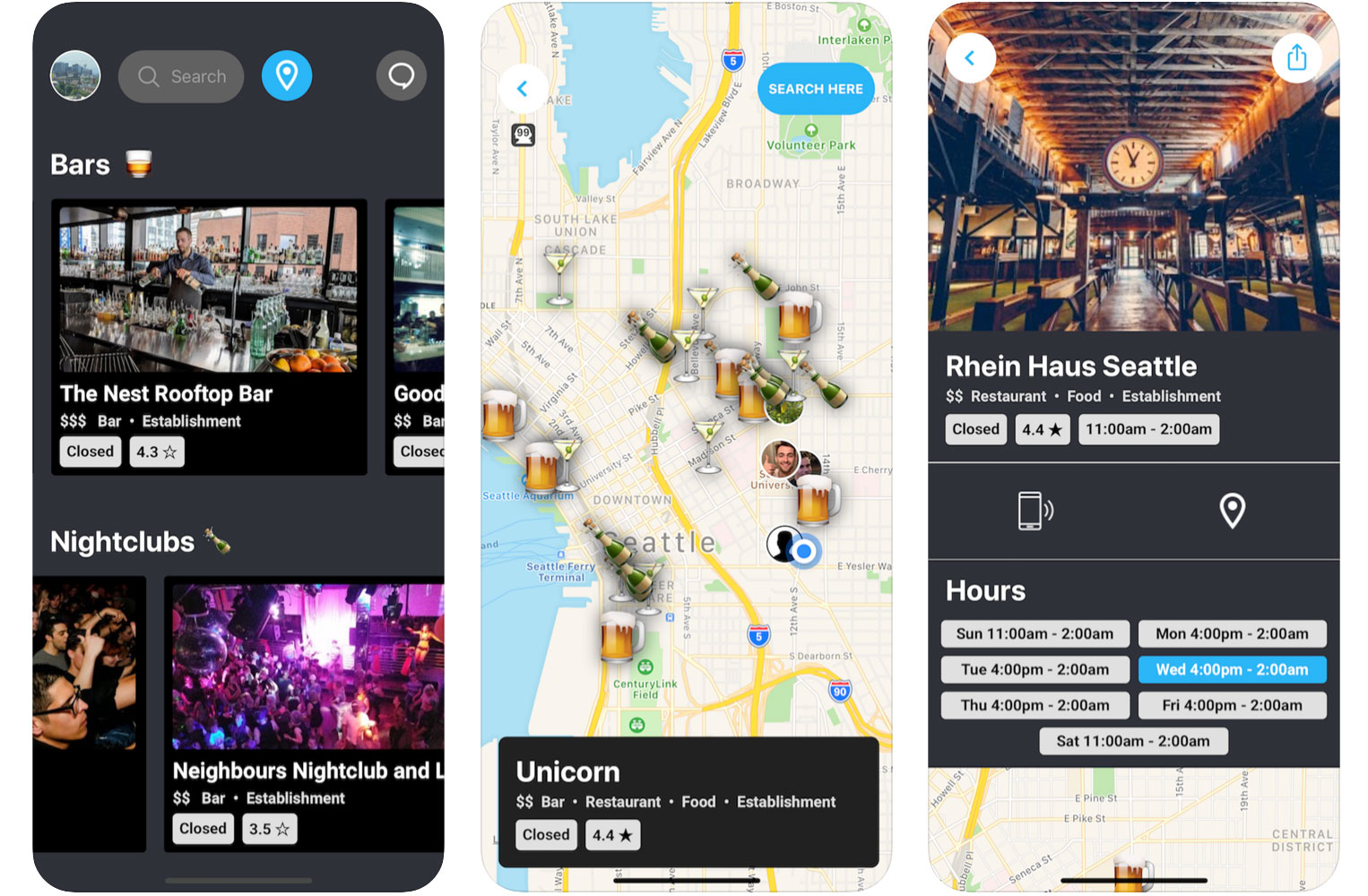"My motto is don't stress yourself out when you're in over your head on a project. Always show up, do your best, tell the truth, and don't get attached to the outcome."- Dylan Bade
Capitol Hill is one of Seattle's most popular nightlife and entertainment districts. Before the COVID-19 pandemic, there were a lot of opportunities for student entrepreneurs to start businesses to complement the bar and nightclub industry. Dylan Bade, the founder of BarBuddy LLC, created an app that assists college students with finding their new favorite party spot. Dylan attributes his success to the valuable experience that he gained at the Harriet Stephenson Business Plan Competition. He was eager to share his thoughts with us and comment on how BarBuddy will be pivoting in response to the recent crisis.
Q: When did you first learn about the Center for Innovation and Entrepreneurship (IEC)?
- D: I learned about the IEC before I even stepped foot on campus. The center is well advertised on Seattle U's website. Later on, I found out about the business plan competitions through various emails and postings around campus.
Q: What led to your decision to enter the Harriet Stephenson Business Plan (HSBPC) competition this year?
- D: The HSBPC is a free opportunity that most students take for granted. We wanted to go through the formal exercise of creating a business plan and getting another set of eyes on it. My team was excited about hearing people's honest reactions and deciding what changes to make to our app. We had a demo set up, and we were able to show BarBuddy live.
Q: Did you have a coach for the business plan competition?
- D: Our coach was Nick Ellingson. He is the Director of Products and Startup Ambassadors at WTIA, a prominent technology business association. He helped us understand what was going on at the business plan competition. We were able to practice our pitch with him and get feedback on our ideas. My team gained a better sense of what was a good idea versus what just sounded good to us.
Q: Why do you think participating in the business plan competition could be valuable to students interested in starting their own business?
- D: If you are already a student entrepreneur, or aspire to be an entrepreneur, you should participate as many times as possible. I have also competed in the SJIM international business plan competition. Every time I participate in a business plan competition, I think I am well-prepared, but I leave feeling like I have a lot more to learn. I had access to so many people that have successfully done what I want to do. The stakes are low compared to the real world. You have a chance to get all your I's dotted and T's crossed. It is hard to be prepared to pitch your idea if you have never had any practice. And, you don't want to have egg on your face. If we pitched BarBuddy at the Harriet Stephenson Business Plan Competition the same way we pitched it at a trade show, it wouldn't have gone well.
Q: How did the pages of feedback from the judges help you to improve BarBuddy?
- D: The judges from the semi-final round were the most helpful. Some didn't share our vision for the app at all. One judge said that he already had an app for sports bars and games. But the best feedback we got was from one of the last advisors that we had. He recommended that we add a point-of-sale system.
Q: What is your biggest lesson learned from working with the IEC?
- D: The most important lesson I learned is that you have to see the world from other's perspectives to be a successful entrepreneur. If you can't understand different viewpoints, then your business will not solve a real-world problem.

Q: How did you get the idea for BarBuddy in the first place?
- D: I was talking to a friend in my business development class, which was my first entrepreneurship class. My original idea was to make a home bar guide where the user can enter ingredients that they have on hand and figure out what cocktails they can make. He suggested that I expand the idea and create a social bar guide. I met my current business partners Aidan Smith and Thomas Neiman, and BarBuddy was born.
Q: How does BarBuddy work?
- D: BarBuddy's interface displays a codified map with beer and champagne signs. When the user doesn't know what is going on Friday or Saturday night, they can open up a map and see which bars are popular and where their friends are going. It is a fun nightlife and a city guide!
Q: How will your business strategy change post-COVID-19?
- D: We considered reverting to my original idea of making a mixology app. But we are going to wait out the crisis and relaunch our app when the time is right. We designed a new version of BarBuddy, and we still need to republish the app under our name in the app store. My team has a unique opportunity to finish transitioning BarBuddy out of third-party management and start preparing for the release the new and improved features. Eventually, BarBuddy will be primarily events based. We have our sights set on participating in Oktoberfest and Capitol Hill Block Party.
Q: Tell me about your time at Seattle University?
- D: When I entered Seattle U, I was an economics major but I switched to finance. I always planned to earn an entrepreneurship and innovation minor. The best classes I took at Seattle U were negotiation skills and principles of accounting. I am a numbers guy, and I think boring subjects are interesting.
Q: What are the strengths that make you cut out for entrepreneurship?
- D: I am creative, independent, personable, and a good problem solver.
Q: Are there any entrepreneurs that inspire you?
- D: Jack Dorsey, CEO of Twitter and Dan Price, CEO of Gravity Payments of Seattle
Once the COVID-19 pandemic has passed, you can expect to see BarBuddy hosting events at various hot spots on Capitol Hill. Despite the current business climate, Dylan Bade, Aidan Smith, and Thomas Neiman are committed to making their dream a reality. A new version of the app will be ready to go by the time the bars open back up. Stay tuned for BarBuddy’s debut, and be sure to check out the Harriet Stephenson Business Plan Competition.

